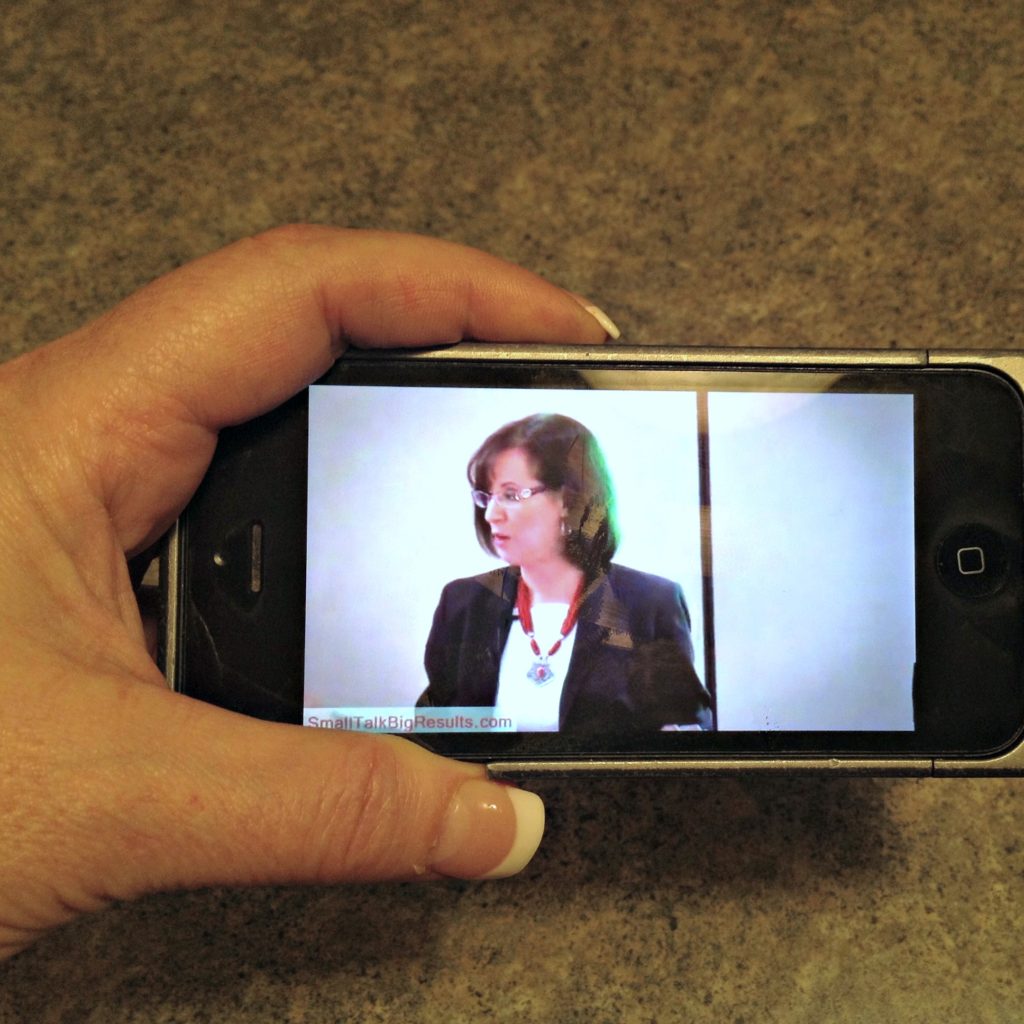Many of the participants dreaded watching themselves on video, which is one reason I had them do it immediately afterwards. I knew from my own experience and from working with others that very few people will watch themselves later.
However, the participants were mostly pleasantly surprised. They weren’t that bad, even if they were their own worst critics. They also noticed things that they didn’t even know they were doing, such as saying ums, smacking lips, swaying, wringing hands and other things that distracted from their message.
I’ll never forget the first few times I saw myself on video. The first time was when I did a stand-up comedy routine in front of a live, paying audience as part of a stand-up comedy class. I couldn’t believe how busy and distracting my patterned dress was. Of course someone could have told me, but seeing it for myself made it unforgettable. From watching my video that day, I learned that clothing does matter!
The next time I saw myself on video, I noticed that I kept hitching up my pants! I didn’t even know I was doing it. From watching my video that day, I learned, yet again, that clothing does matter (wear a belt on loose pants!).
When I work with clients, getting them to take my advice is so much easier if they can see the need for change without me saying anything. I had one client who, in the first 3 minutes of his presentations had 30 ums. I could have told him we needed to work on reducing the ums, but it was so much more effective to have him watch the first 3 minutes of his presentation, turn to me and say, “I say way too many ums! How can I eliminate them?”
At your next presentation–at work, at Toastmasters, or elsewhere, ask a friend or coworker to video you (or bring your own tripod, like a table top tripod) and then, within 24 hours watch it. If you have time, watch it without the sound, too, to focus on the visual elements of your presentation.
What are YOU doing that you don’t even know? Know thyself!


Well said! I too find watching video of my talks really helpful.
As well as seeing or hearing distracting habits that you can work on to reduce, it also means you can see and hear things you did well, and it lets you be more objective about other people’s feedback.